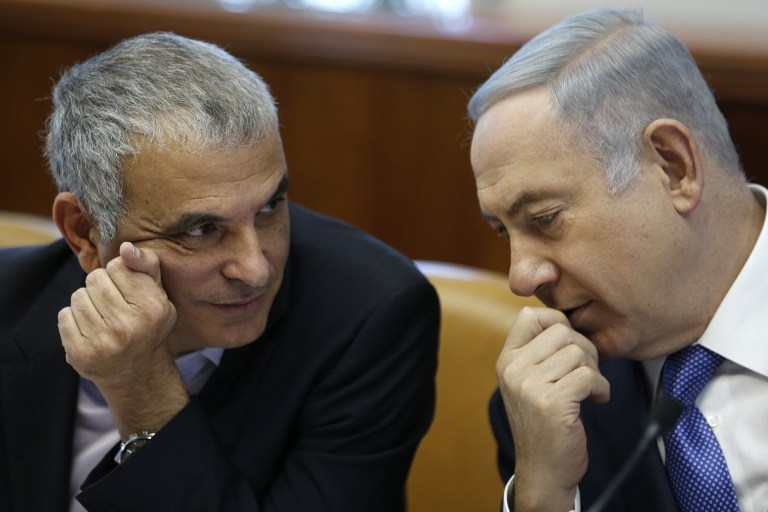Israel caps bankers' salaries to $658,000 a year

Israel's parliament has passed a law capping the annual salaries of bank executives at $658,000, restrictions more stringent than recent reforms in the US and Europe.
The law, passed by the Knesset this week with a 56-0 vote, says no salary in the financial sector can be more than 35 times that of the lowest-paid worker in the same company.
Finance minister Moshe Kahlon, who pushed through the legislation, reportedly said on Tuesday that the law had a "moral significance".
"It symbolises narrowing pay gaps, solidarity and consideration for the weak," he told Reuters.
The legislation is scheduled to take effect in six months.
The Association of Banks in Israel is said to be considering an appeal to Israel's supreme court against the legislation but it had no official comment on Tuesday.
Israeli media have described the measure as unprecedented in its severity and some have warned it could harm the country's economy.
"Israel, a country looking for investment, must not be the most extreme on the issue," left-leaning newspaper Haaretz wrote in an editorial.
The high cost of living is a major concern in Israel and a key issue for Kahlon, who ran on a platform to lower the cost of living and reform banks in last year's parliamentary elections.
Prime Minister Benjamin Netanyahu has taken a pro-business stance, but holds only a one-seat majority in parliament and needs Kahlon's Kulanu party to maintain his majority.
Interviewed on public radio last week, the director of Netanyahu's office said he had given Kahlon his backing on the bankers' salaries bill but did not want to see the measure extended to other industries.
"This is an important reform by the finance minister and the prime minister supports him on the matter," Eli Groner told the radio.
"At the same time, we do not think it would be right to extend it to other sectors."
On Sunday, the supreme court struck down a landmark deal for the exploitation of Israel's Mediterranean gas reserves, drawing fire from Netanyahu, who warned that the country was acquiring a reputation for being hostile to business.
"Israel is perceived as a country with exaggerated legal intervention, in which it is hard to do business," he said in a statement.
The deal, however, has sparked controversy and protests from critics who see it as an effective monopoly being handed over to the gas companies.
New MEE newsletter: Jerusalem Dispatch
Sign up to get the latest insights and analysis on Israel-Palestine, alongside Turkey Unpacked and other MEE newsletters
Middle East Eye delivers independent and unrivalled coverage and analysis of the Middle East, North Africa and beyond. To learn more about republishing this content and the associated fees, please fill out this form. More about MEE can be found here.




